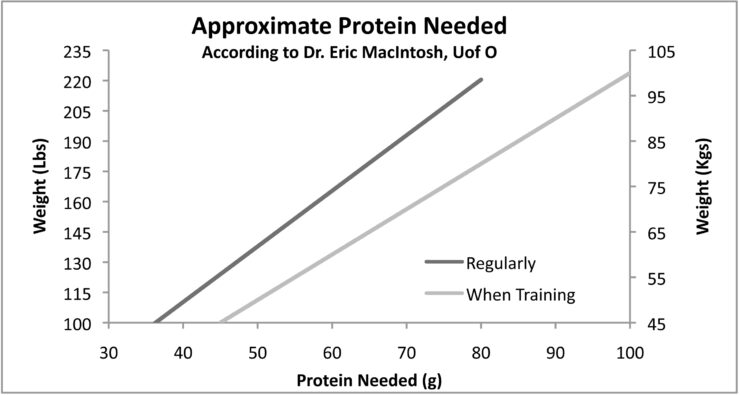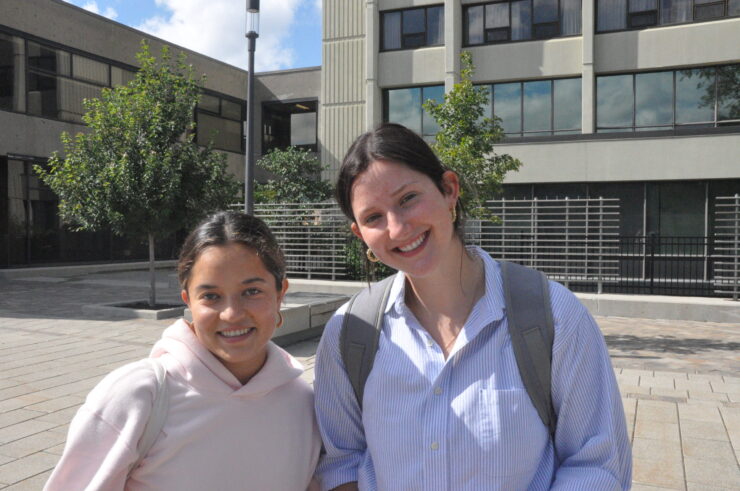Skip the coffee and frozen pizzas this upcoming exam season
The Fulcrum sat down with Sonia Du, a registered dietitian in Ottawa to discuss the best tips for students to stay healthy, what unhealthy habits to avoid, and the best ways to make sure you’re eating nutritious foods during stressful times. All questions were answered via email.
The Fulcrum (F): What is the biggest mistake university students make when it comes to their diets and/or health?
Sonia Du (SD): I think the biggest mistake is just using the wrong type of convenience foods. When students hear “convenience” they probably think more towards frozen meals, pizzas, cookies, muffins, cup noodles, vending machines snacks and quick meals like mac and cheese.
While these foods can be helpful at times, having them regularly will greatly increase your intake of saturated fats, added sugars and sodium. Instead, when thinking of convenience foods, think of towards frozen veggies, boxed salad greens, frozen fruit, canned no sodium added beans and lentils, canned light tuna, and rotisserie chicken. Much easier to use versus making it or preparing it yourself but still full of nutrients that support your health.
F: In regards to nutrition, what do university age students most often miss out on?
SD: Students usually miss out on the various nutrients that are in fruits and vegetables, which contain essential nutrients like vitamins C and A. Fruits can be easily included as a part of breakfasts and snacks.
A few easier ways to start incorporating more veggies include putting more boxed salad greens, baby spinach or bagged fresh coleslaw in sandwiches and wraps, dumping frozen veggies to your pasta sauce, adding a side salad to your pizza nights and having sugar snap peas with hummus (the sweeter taste of sugar snap peas may help to increase palatability).
F: What are the best types of food to consume during stressful periods, such as during exams?
SD: An increase of fatty fish (such as salmon, mackerel, sardines or trout) may be beneficial for the brain. These can be bought fresh, frozen or canned for convenience. Other than that, there are really no specific food groups that are better than another. You should continue to have regular, balanced meals during this time.
However, you do want to be more aware of emotional eating and using food as a coping mechanism for stress. Although this is an incredibly normal response to stress, we tend to reach for foods that have little nutritional value, and doing so regularly won’t provide you the energy you need to cope through the exam period and it won’t give your body the nutrients it needs.
When it comes to meal ideas, try something super quick for morning exams, such as overnight oats or chia pudding that you prepared the night before, or having whole grain toast topped with nut butter and fruit with one or two eggs on the side. If you have back to back exams, replenish your energy with grab and go balanced snacks that pair a protein source with a fibre source, such as almonds with fruit, a protein bar with fruit or a whole grain granola bar with a yogurt cup. In addition, dial back on the caffeine, especially if you know it affects you. It may give you energy, but it can also make you jittery and anxious during your exam.
F: How can students ensure they are eating healthy and not missing out on important nutrients?
SD: The key is to have balanced meals and to consume a variety of foods as part of those meals. A simple visual tool to create a balanced meal is to imagine a plate.
Try to have half of that plate be filled with water-rich (or non-starchy) veggies, such as zucchini, bell peppers, broccoli, mushrooms and leafy greens. Have a quarter of the plate be filled with whole grains (like whole wheat pasta, brown rice, quinoa, barley, and farro) and have the last quarter filled with lean protein, such as chicken, turkey, lean ground beef, tofu, beans or lentils.
You also want to include a few healthy fats either through the oil you cook with or an extra addition like avocado, oil-based dressing or nuts that are sprinkled in. With balanced meals, students are focusing on the important macronutrients like carbohydrates, protein and fats, and by varying up your food sources and not eating the same foods for a long period of time, you’re diversifying the nutrients you get through those foods.




